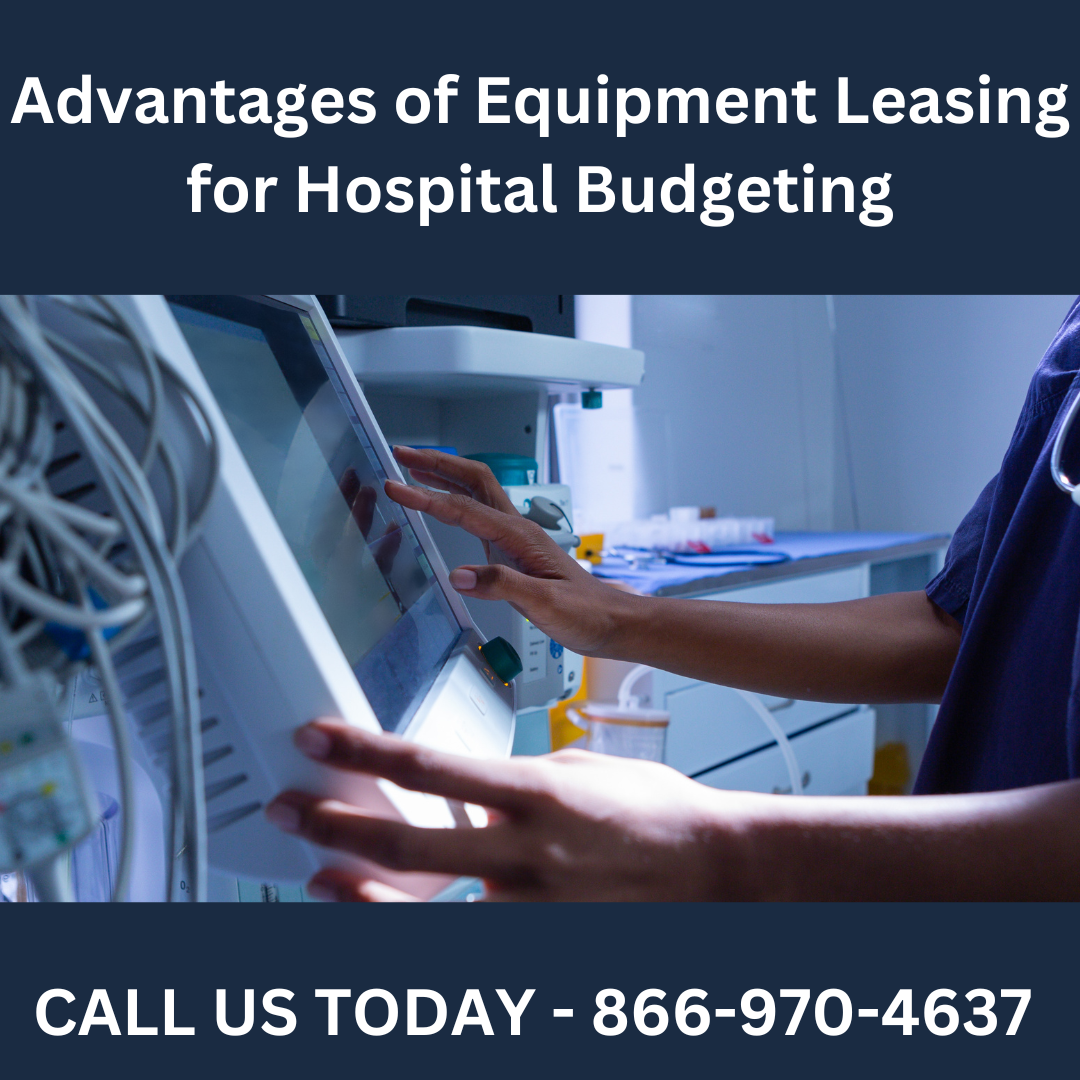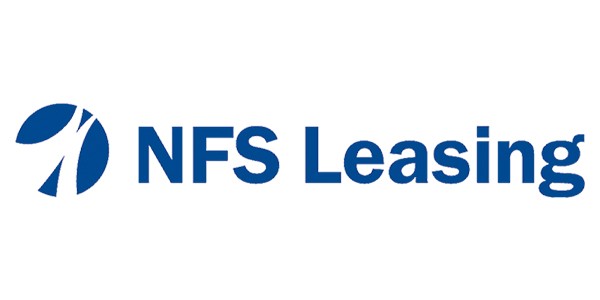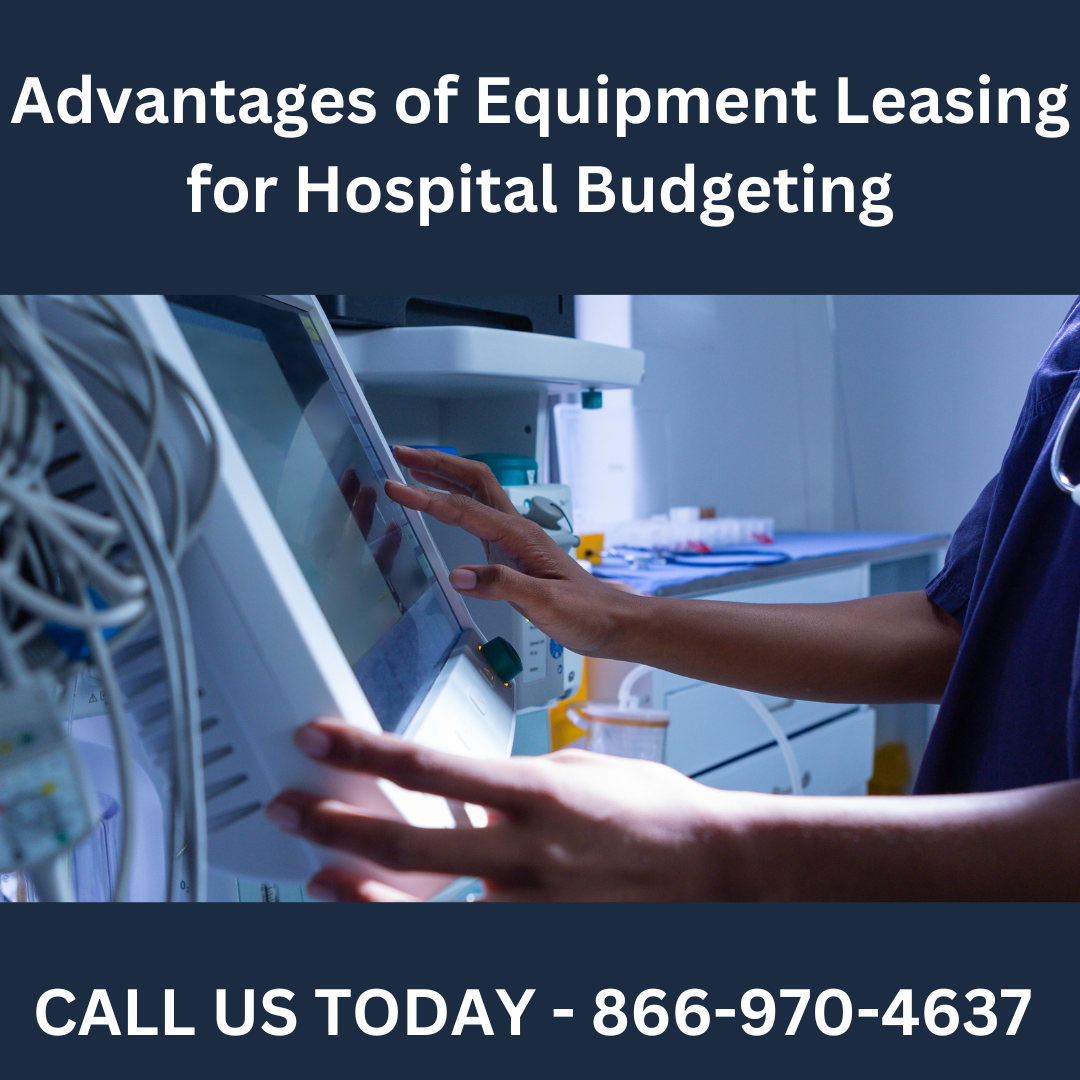How Equipment Leasing Enhances Hospital Finances and Access to Technology
Beverly, United States - January 27, 2025 / NFS Leasing, Inc. /
Hospitals constantly face financial pressure to provide high-quality care while controlling expenses. Acquiring advanced medical equipment, essential for effective diagnosis and treatment, often involves significant costs that can strain budgets. In this context, healthcare equipment leasing has emerged as a practical alternative to outright purchases. Hospitals can better manage their resources by leasing medical equipment, accessing cutting-edge technology, and improving financial planning.

What is Equipment Leasing in Healthcare?
Healthcare equipment leasing refers to an agreement in which hospitals and medical facilities acquire the use of medical devices and technology without outright purchasing them. Instead, they pay periodic lease fees over a set duration. This allows hospitals to access essential tools, such as diagnostic imaging machines and surgical instruments, IT systems, and patient monitoring devices, without the heavy financial burden of full ownership.
The key difference between leasing and purchasing is ownership. While purchasing requires a significant upfront investment, with hospitals owning the equipment outright, leasing allows the use of equipment for a fraction of the cost. Leasing also allows the flexibility to return or upgrade the equipment at the end of the lease term.
Key Advantages of Healthcare Equipment Leasing
Cost-Effectiveness and Budget Management
Leasing medical equipment offers hospitals significant financial relief by removing the need for large upfront purchases. Instead of stretching capital resources to buy costly devices, hospitals can use predictable monthly payments that align with their budget cycles.
This predictability enables hospital administrators to allocate funds more effectively, directing resources toward other essential areas like staffing, infrastructure, or research. By conserving cash flow, leasing ensures that hospitals remain agile and responsive to financial demands without compromising patient care.
Access to Advanced Technology
The medical technology landscape evolves rapidly. State-of-the-art equipment today may become outdated in just a few years. Leasing allows hospitals to keep pace with these advancements by providing access to the latest medical technologies.
Hospitals can avoid investing in equipment that may soon lose value through leasing agreements. Many leasing contracts also include options to upgrade to newer models during the lease term, ensuring that hospitals can maintain the highest standards of care without uninterrupted reinvestment.
Tax Benefits
Another financial advantage of leasing is its favorable tax implications. In most cases, the cost of medical equipment leases can be deducted as operating expenses, reducing hospitals' overall tax burden. This creates financial relief, particularly for hospitals struggling to balance expenses with revenue.
Administrators should carefully evaluate the tax benefits specific to their institution when comparing leasing and purchasing. These can vary depending on local regulations and the structure of the lease agreement.
Flexibility and Customization
Leasing agreements are often created to meet hospitals' unique needs. Depending on operational requirements, hospitals can choose flexible terms to upgrade, extend, or return equipment at the end of the lease period.
This customization ensures that healthcare providers are not locked into fixed contracts that no longer serve their needs. With leasing, hospitals can respond to changing demands, whether replacing underutilized equipment or acquiring advanced tools as patient needs evolve.
Improved Financial Planning and Risk Management
One of the key benefits of leasing is its ability to simplify financial planning. Fixed, predictable payments allow hospital administrators to plan expenditures accurately over time, minimizing the uncertainty associated with large capital investments.
Leasing also shifts ownership risks to the leasing company. For instance, the leasing provider retains responsibility for depreciation or potential loss in value, ensuring that hospitals maintain financial stability. In addition, many leasing agreements include maintenance or repair services, reducing the risk of unexpected repair costs during the lease term.
In uncertain economic times, leasing provides hospitals with a more stable financial model. This allows them to focus on patient care without the added stress of managing ownership-related risks.
Scenarios Where Leasing is Ideal
Leasing medical equipment isn’t a one-size-fits-all solution, but it can be an important strategy in certain scenarios:
Small hospitals or clinics with limited budgets: Facilities with tighter financial constraints can use leasing to access high-quality equipment without the burden of heavy initial costs.
Hospitals seeking regular technology upgrades: Institutions that prioritize staying at the forefront of medical technology can lease to maintain access to state-of-the-art tools.
Temporary healthcare facilities or projects: Leasing is particularly advantageous for field hospitals, pop-up clinics, or other temporary setups that require short-term equipment use.
Hospitals can align equipment procurement strategically with their financial and operational needs by choosing leasing strategically.
Challenges or Considerations in Leasing
While leasing offers numerous benefits, potential drawbacks must be considered. One challenge is that long-term leasing costs may exceed the cost of outright purchasing, particularly if the equipment has been consistently used for many years.
Hospitals must also thoroughly review lease agreements before signing. Some contracts may include hidden fees, limited maintenance coverage, or restrictions on equipment use. Administrators should seek clear, transparent terms to avoid complications and ensure the lease aligns with the equipment’s expected life cycle and the hospital’s broader financial goals.
How Equipment Leasing Supports Smart Hospital Budgeting
Leasing medical equipment provides hospitals with a practical way to manage budgets, access advanced technology, and reduce financial risks. By offering cost-effective, flexible solutions, leasing allows hospitals to focus on delivering exceptional patient care without the financial strain of outright ownership.
For hospitals seeking sustainable growth and operational efficiency, equipment leasing offers a balance of financial responsibility with the demands of modern healthcare. Partnering with trusted leasing providers can help hospitals secure the tools they need to thrive in a constantly evolving medical world.

Contact Information:
NFS Leasing, Inc.
900 Cummings Ctr Ste 226U
Beverly, MA 01915-6181
United States
Ashley Whyman
(866) 970-4637
https://nfsleasing.com/
Original Source: https://nfsleasing.com/medical-equipment-financing-healthcare-operations/


